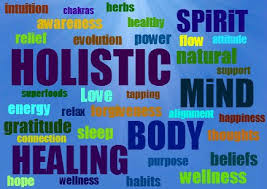In the past I have described holistic time management, as I see it, as the application of strategies necessary in order to lead a happier, healthier, longer, and more productive and fulfilling life. It addresses the person as a whole as opposed to simply their management of time.
But many time conscious people could be turned off by this definition; because they want to simply focus on efficiency and effectiveness and getting more work done in less time.
Either they think they are already happy, healthy, and destined for a long, fulfilling life – or they are not at that stage of life where those things seem important to them. After all, why would they be concerned about such things as exercise, getting more sleep, building personal relationships and spending time in the garden or walking in the park? These things consume time rather than save time, don’t they?
The short answer to that last question is “yes.” The long answer is that they only consume time on a short-term basis – just as organizing your office, training staff members so they can take over jobs that you are currently doing, and learning to use available technology all consume time. But these are all investments of time, which soon pay off by freeing up even more time that you can spend on those priority personal and organizational goals that will ensure your success.
For example, getting more sleep could increase your energy, boost your memory, improve your creativity, reduce lost time through illness and even extend your productive time by two or more years. Wouldn’t that be considered a time management strategy? Get less than six hours sleep a night, and you work as efficiently as you would if you were drunk. And if you think you can get by just fine on five hours sleep a night, remember it’s your sleep deprived brain that’s telling you that.
If you want scientific evidence of these things, refer to my e-book, Sleep: a time management strategy, published by Bookboon.com. There are plenty of references there. I’m just a reporter, not a researcher.
Similarly it has been shown that attitude, exercise, environment, mindfulness, stress management, relationships, music, volunteering, laughter, diet, nature, memory training, purposeful living, and even scenic views can increase your personal productivity – as well as umpacting your longevity. All these and more are discussed in my most recent book, How to grow older without growing old, a 147-page book now available as a download at my Taylorintime website.
It summarizes the relevant information in at least half of my 21 e-books that have been published to date by Bookboon.com. Although it is directed at fellow seniors, I believe it’s an even more important read as a time investment for those sixty-five and younger.


Recent Comments